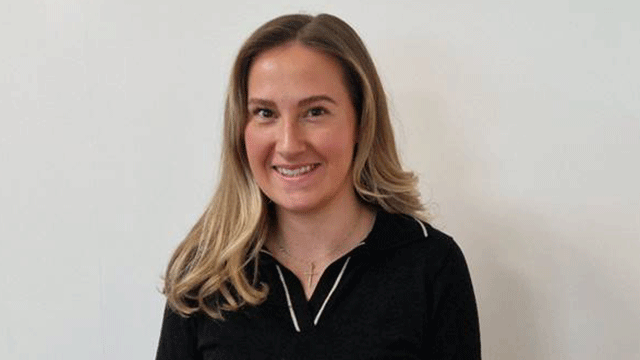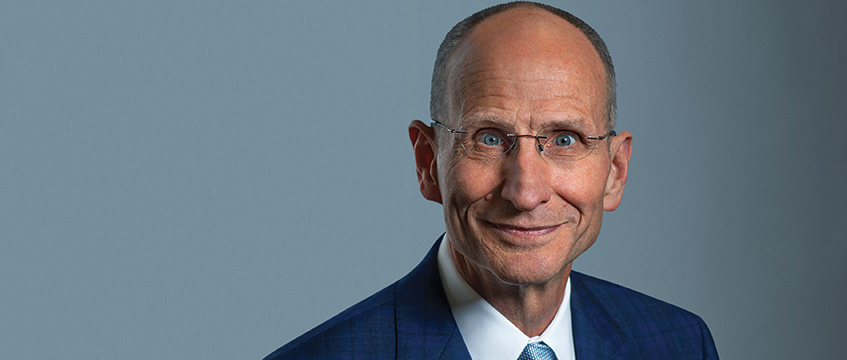‘We’ve got to get with the programme’: Real estate’s ESG responsibilities
A small real estate company searching for footsteps to follow in as it starts its sustainability journey could do worse than look to those of Derwent London.
The FTSE 250 company has long been an advocate of real estate promoting environmental, social and governance issues, not only through its developments but also in its business operations and use of green finance. John Davies, its head of sustainability, takes his responsibility to help other companies do the same seriously.
“You can’t avoid it – ultimately it is here to stay,” Davies says of the ESG agenda. “We’re always more than happy to talk to our own and offer up advice about what we’ve done, the mistakes that we’ve made and the progress that we’ve made as a result of that.”
A small real estate company searching for footsteps to follow in as it starts its sustainability journey could do worse than look to those of Derwent London.
The FTSE 250 company has long been an advocate of real estate promoting environmental, social and governance issues, not only through its developments but also in its business operations and use of green finance. John Davies, its head of sustainability, takes his responsibility to help other companies do the same seriously.
“You can’t avoid it – ultimately it is here to stay,” Davies says of the ESG agenda. “We’re always more than happy to talk to our own and offer up advice about what we’ve done, the mistakes that we’ve made and the progress that we’ve made as a result of that.”
Davies wants Derwent to inspire, although he warns listeners to EG’s latest ESG podcast that each company will need to take a slightly different path, even if the footprints ultimately lead to the same destination. “Don’t copy and paste a programme out of somebody else’s book and put it into yours because it won’t fit,” he says. “Look at your business model and weave ESG into it.”
Joining Davies to discuss ESG strategy was Stride Treglown sustainability director John Wright, who agrees that smaller real estate firms should take the opportunity to learn from their larger peers. The future of their business will depend on it, he adds.
“We deal with developers and funds from the very big to small local developers who are nowhere even near starting their journey,” Wright says. “For them, [the best approach is] go and talk to some of the bigger people that have gone down that journey more quickly. It’s not hair-shirted hippies who are doing this kind of stuff. People are doing this for very good reason – it’s good business. The product you’re creating is not going to be worth anywhere near as much if you ignore it or come at it very late.”
Moving oil tankers
Smaller companies will find both benefits and bottlenecks in the process due to their size and scale, EG’s guests suggest. Agility can be a clear plus. “I think sometimes it’s easier for smaller businesses on ESG because large businesses can be like oil tankers to change direction,” says DWF senior partner Melanie Williams.
But for now, the gap between companies large and small is “huge”, adds Evora co-founder Ed Gabbitas.
“A good starting point in terms of how you get going, is upskilling, awareness,” Gabbitas says. “It is a new language that we’re talking about, net zero, and there needs to be a collaboration between the technical community that understands the science and the engineering of buildings, and the funds, asset managers and financiers who look after the management of that capital. There needs to be a coming together so that you can address the climate crisis and really achieve the impacts and scale needed on this.”
The key is to spread awareness and encourage collaboration, Davies says. “We need to get everybody else moving at that same speed and we need to get others talking fluently and feeling comfortable talking about it and preventing them from stepping into that greenwashing trap, which sometimes happens inadvertently, not maliciously.”
We need to get everybody else moving at that same speed and we need to get others talking fluently and feeling comfortable talking about it and preventing them from stepping into that greenwashing trap
– John Davies, Derwent London
DWF’s Williams agrees on the urgency of bringing varied stakeholders together, and sees a role for advisory parties such as DWF to help encourage that in deal documentation.
“The other collaborators to all of this are government, councils who own premises and land, and tenants, because you’ve got to take people with you,” Williams says. “You need appropriate provisions to work together in transaction documents so that there is sharing of the energy consumption and the ability to have groups get together to work out how they can decrease that. We’re advising clients that they should have it in their documentation, not just if they’re landlord, but also if they’re tenant or if they’re looking to forward fund. It is becoming an industry standard, but there is a lot of collaboration still to do.”
Rollercoaster ride
It can all be daunting. Davies describes Derwent’s own ESG experiences as “a rollercoaster ride” over the past years. But he urges his peers not to feel anxious about taking action.
“It might look scary,” he says “but like anything when you break it down into its constituent parts and start logically and methodically working through it, you’ll be amazed how it all starts to come together.”
Ultimately, EG’s guests said, real estate will be pushed further down the ESG road by all parties it touches.
“ESG is no longer being seen as a luxury, no longer purely being seen as a cost. It’s now becoming a matter of risk management, and there has been a tipping point of people’s understanding,” Gabbitas says. “If we fail to address this, you’re going to limit the pool of investors that will work with you, tenants that want to be in your building, employees that want to work for your company.”
And if encouragement from financiers, tenants and teams isn’t enough, some industry executives are under pressure even closer to home.
“My kids are 14 and 18,” Williams says. “They’re telling me they don’t want to work in a dirty building. They don’t want to drive a dirty car. One said to us the other day, when we were debating getting an electric car, ‘By what date will we have to get rid of the diesel?’ He looked that up and said, ‘now look at when climate change is not reversible’.
“The next generation get all this. We’ve got to get with the programme.”
In partnership with
To send feedback, e-mail tim.burke@eg.co.uk or tweet @_tim_burke or @EGPropertyNews
Photo: Jeon Sang-O/Pixabay











